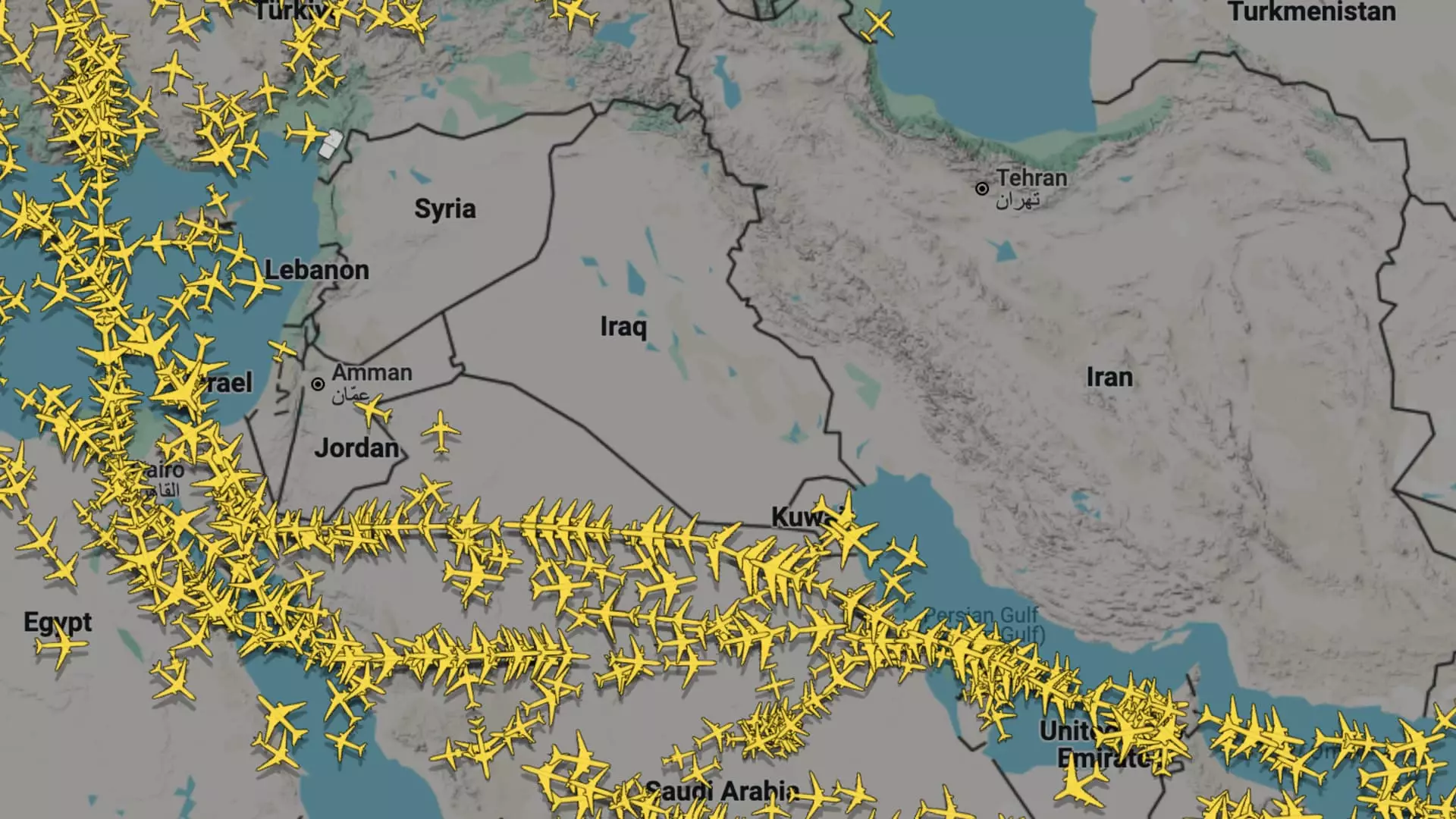In a dramatic twist of events that emphasizes the fragility of peace in the Middle East, airlines worldwide have abruptly axed flights to Israel following missile strikes on Iranian territory, an escalation that showcases not only military rivalry but deep-rooted geopolitical tensions. The swift reaction to these strikes, including airspace closures and flight cancellations by major carriers like Delta and United Airlines, signifies a sobering realization: commercial aviation is heavily impacted by the whims of geopolitics. Rather than merely a matter of convenience, these cancellations present a dire reflection of the escalating warfare that threatens air travel security and the safety of countless passengers.
Delta’s Latest Suspension: A Sign of the Times
Just weeks after re-initiating services to Tel Aviv, Delta Air Lines announced a temporary halt that could stretch into September. This swift backtrack is telling of an industry struggling to maintain optimism amidst rising tensions. It brings to light a revealing paradox: airlines have to navigate not only the logistics of travel but also the unpredictable nature of international relations. Perplexingly, Delta had previously positioned itself to capitalize on anticipated demand, only to be thwarted by military conflicts that seem to reignite just as stability appeared on the horizon.
Global Ripple Effects: A Broader Concern
The operational shutdowns didn’t stop at American carriers. International aviation giants like Lufthansa and Emirates are likewise reconsidering their routes, demonstrating just how interconnected our globalized world has become. With airlines diverting flights and suspending services to destinations like Jordan and Lebanon, the ripple effects are profound, raising questions about the future of Middle Eastern airspace as a reliable corridor for travel. The long-term implications are equally concerning, as ongoing conflicts could contribute to a sustained withdrawal of air services, isolating nations and further destabilizing already volatile regions.
Economic Implications: The Airline Industry at a Crossroads
For airlines, these disruptions are not merely operational hurdles; they represent a significant financial strain. Travel vouchers and waived fees, typically touted as customer-friendly policies, underscore the operational chaos that potential passengers are navigating. The economic ramifications may very well stretch beyond immediate losses, potentially impacting future bookings and the broader economic landscape of tourism in Israel and surrounding nations. Here we see a convergence of human safety and economic imperatives; the desire for profit clashes with the cold, hard reality of safety risks posed by military conflicts.
A Reflection on Security: What Lies Ahead?
As aircrafts are rerouted to ensure safety, one cannot help but question the long-term viability of air travel in regions where geopolitical tensions are the norm rather than the exception. The aviation sector is at a crossroads, where security concerns are forcing carriers to make tough operational decisions—could we be witnessing the dawn of a new norm in global travel finance? The current trajectory hints at potential increases in fare prices and limited flight options, as airlines grapple with heightened risks and regulations, leaving travelers in a precarious position.
The cascading effects of military actions not only shake the foundations of regional stability but redefine the realities of air travel in a world increasingly shaped by conflict. As geopolitical dynamics continue to evolve, airlines may find themselves in a never-ending balancing act that weighs the desires of travelers against the stark realities of security and conflict.

